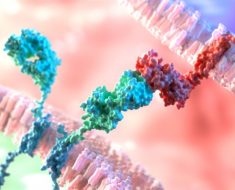Arthritis can make carrying out simple, everyday tasks painful and difficult, and there are two main types – osteoarthritis and rheumatoid arthritis. Osteoarthritis is the most common type of arthritis in the UK, caused by constant low level damage to joints. Rheumatoid arthritis develops when the body’s immune systems starts to attack the tissue lining in the joints. Both can trigger symptoms such as painful joints, swelling around joints and stiffness in joints.
Natural compound MSM has proven helpful for arthritis
For different people, different treatments prove effective. Some may find comfort in over-the-counter painkillers, like paracetamol, while others may find relief doing exercises and stretches.
Those looking to try an alternative treatment may want to look to supplements for help.
Natural compound MSM has proven helpful in reducing inflammation in the body, and is available as a powder and as capsules.
Research has found MSM specifically inhibits the activity of a chemical called NF-kB, which plays a key role in regulating the immune response to infection.
MSM has also been found to suppress the production of other inflammatory chemicals in the body.
Holland & Barrett explains what MSM is: “MSM stands for methlysulfonylmethane, a natural compound that contains the mineral sulphur.

“It’s found in small quantities in fresh fruit and vegetables, meat and dairy foods, cereals and grains.”
As well as arthritis, MSM has been used to ease more general joint and muscle pain, including after exercise.
Experts also believe it can help calm inflammatory conditions, such as hay fever.
The high street health store advises most people can tolerate doses of MSM up to 4000mg.
But it warns: “Do not start taking MSM without talking to your GP first.


“Research also shows that taking more MSM will not give you better results, so higher doses are not necessary.
“If you’re pregnant or breast-feeding, talk to your GP or a dietician if you’re interested in taking MSM.”
Another supplement which has been proven to support joints, particularly in people with arthritis, is turmeric.
A 2013 study in the journal Biofactors found that curcumin may be responsible for curbing inflammation and swelling.
Researchers say it has this effect by blocking enzymes and other proteins that create an inflammatory response in the body.
Source: Read Full Article





